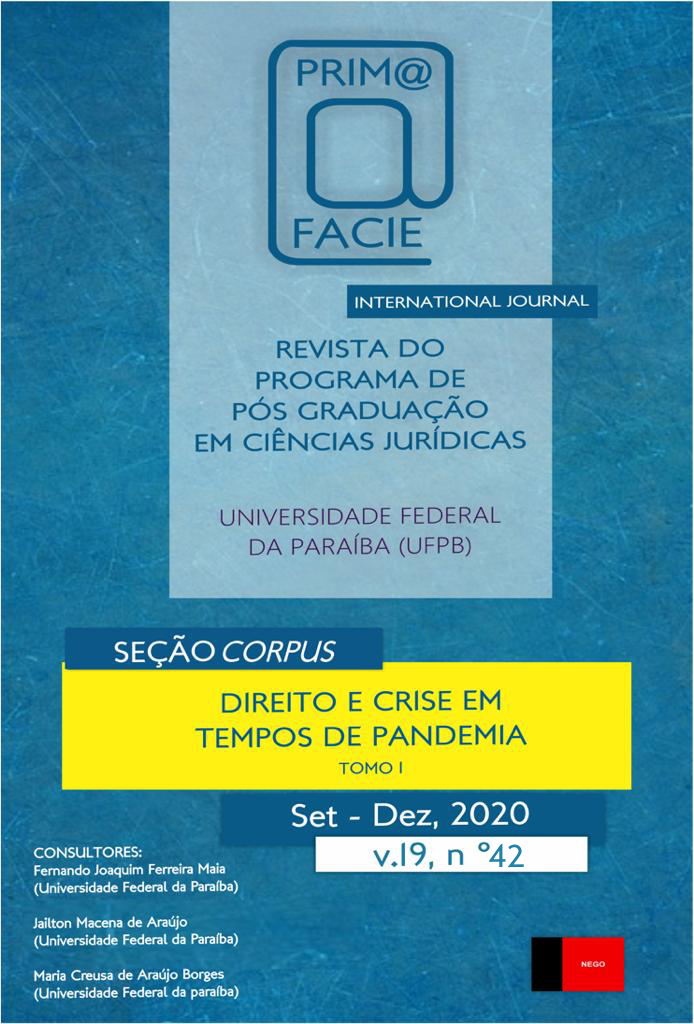Curfew And Lockdown: The Unconstitutional Mutation Promoted By Local Authorities While Fighting Covid-19 In Brazil
DOI:
https://doi.org/10.22478/ufpb.1678-2593.2020v19n42.54628Keywords:
Coronavirus. Covid-19. Curfew. Lockdown. Unconstitutional mutation. State of siege.Abstract
The present article aims to verify the configuration of an extraordinary legality and an unconstitutional mutation in Brazil, both caused by the Covid-19 pandemic in that country in 2020 and by the imposition by local authorities of drastic measures against fundamental rights in the context of fighting the mentioned pandemic. The study of this subject aims, through the hypothetical-deductive method, first to analyze the theories on the state of institutional crises and the constitutional mutations and then proceed to contrast them with the concrete case, that is, the adoption of curfew and lockdown measures by local authorities in the absence of a state of siege that could justify it. We conclude that the mentioned measures are unconstitutional since they disregard the Framers’ intentions on the matter and that judicial tolerance with such arbitrariness has produced an unconstitutional mutation by means of which it is allowed to suspend constitutional rights outside of the hypotheses in which the Constitution itself allows it, as if the country was living an extraordinary legality.


